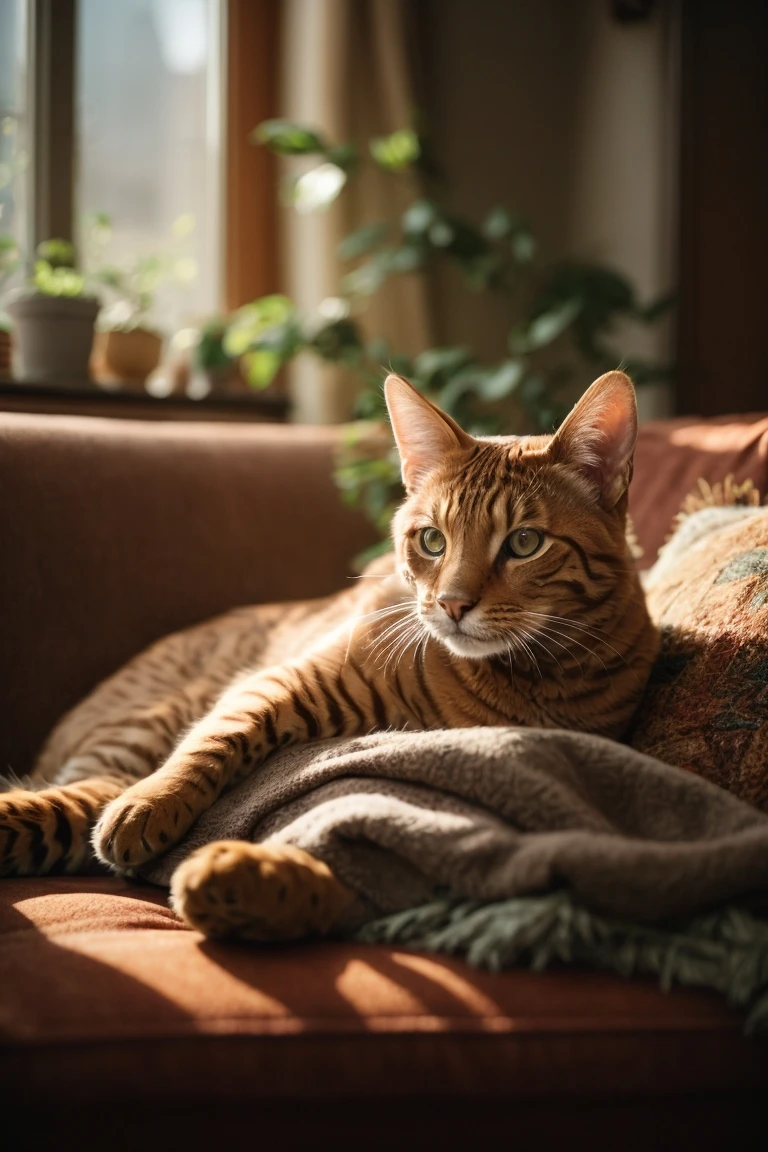Are Ocicats Hypoallergenic?

With their wild appearance but affectionate nature, ocicats are growing in popularity as pets. But many prospective owners wonder - are ocicats hypoallergenic? This exotic breed has origins in Siamese, Abyssinian, and American Shorthair cats. While not completely non-allergenic, ocicats tend to produce less of the Fel d 1 protein that triggers allergies in humans. Read on to learn more about ocicat allergies.
What Causes Cat Allergies?
People with cat allergies are reacting to specific proteins found in cat dander, saliva, and urine. The biggest culprit is Fel d 1, a protein secreted by cat sebaceous glands and found in skin flakes. When shed, these dander flakes release Fel d 1 into the air, where it can be inhaled. Allergens are also transferred when a cat licks their fur in grooming.
While all cats produce Fel d 1, levels vary significantly between breeds. In general, males produce more allergen than females too. Allergies also depend on the individual person's immune response.
Are Ocicats Hypoallergenic?
While no cat is completely non-allergenic, ocicats are considered moderately tolerable for some allergy sufferers due to:
- Low Fel d 1 levels - Ocicats produce less of this allergen than other cats.
- Short coat - Does not hold much dander. Easier grooming.
- Infrequent shedding - Sheds less than heavy shedding breeds.
- Bathing - Can reduce dander with regular bathing.
However, individuals react differently. There is no guarantee an ocicat will not trigger allergies. Meet the breed before adopting.
Tips for Managing Ocicat Allergies
If you are sensitive to cats, the following tips can help manage allergies to ocicats:
- Take allergy medication as recommended by your doctor.
- Bathe your ocicat 1-2 times per month to control dander.
- Brush frequently with a HEPA filter vacuum nearby to catch loose hair.
- Use HEPA air filters throughout your home.
- Vacuum frequently using a HEPA filter vacuum.
- Groom your ocicat often to remove allergens trapped in the fur.
- Limit your ocicat to one room, ideally with hardwood floors.
- Wash hands after handling your ocicat.
- Consider allergy immunotherapy shots to build tolerance over time.
With diligence, moderate allergy sufferers may tolerate living with an ocicat. But consult your doctor.
Key Considerations Before Adopting an Ocicat
Ocicats are not a good match for those with severe cat allergies or asthma triggered by dander. Important factors to consider include:
- Allergy severity - Mild vs. severe. Ocicats are not recommended for severe allergy sufferers.
- Reaction to specific cats - Meet the individual cat if possible. Specific animals vary in allergen levels.
- Other allergies - Cross-reactivity with other allergies can worsen reactions.
- Age - Allergies may increase over time. Young children with pet allergies often tolerate animals more than adults.
- Asthma - Allergens can trigger asthma attacks in sensitive individuals.
- Home environment - Hardwoods vs. carpet. Open windows vs. closed. Home size.
Discuss your unique situation with your doctor and breeder when considering an ocicat. Proper management can allow many moderate allergy sufferers to welcome an ocicat into their home.
Ocicat Attributes for Allergy Sufferers
Beyond their moderately low allergens, ocicats have other attributes that make them a good choice for cat-allergic owners:
- Affectionate nature - Bonds strongly with owners. Loves attention.
- Athleticism - Agile and energetic. Keeps themselves entertained.
- Intelligence - Quickly learns routines. Responds well to training.
- Adaptability - Does well confined to one or two rooms if needed.
- Playfulness - Batting toys burns energy so they rest more. Less boredom and mischief.
For those able to tolerate ocicats, their lively and devoted personality is a delightful bonus. Proper management and medical care can allow allergy sufferers to enjoy life with this exotic breed.
Should You Get an Ocicat?
While moderately hypoallergenic for some individuals, ocicats may still trigger allergies. Consider your specific allergy severity, reaction to individual cats, and home environment before adopting. Ocicats are not suitable for those with asthma or severe cat allergies.
However, their energetic affection makes ocicats a good choice for moderately allergic owners who fall in love with the breed. With medical management, diligent grooming and cleaning, and selective access to rooms, many allergy sufferers find ocicats to be delightful and livable feline companions.